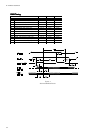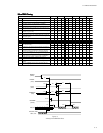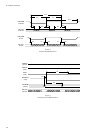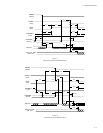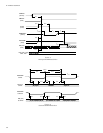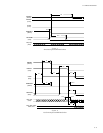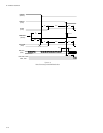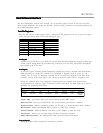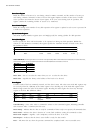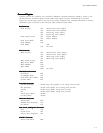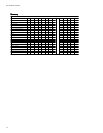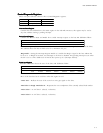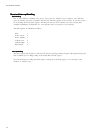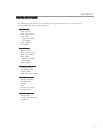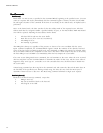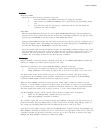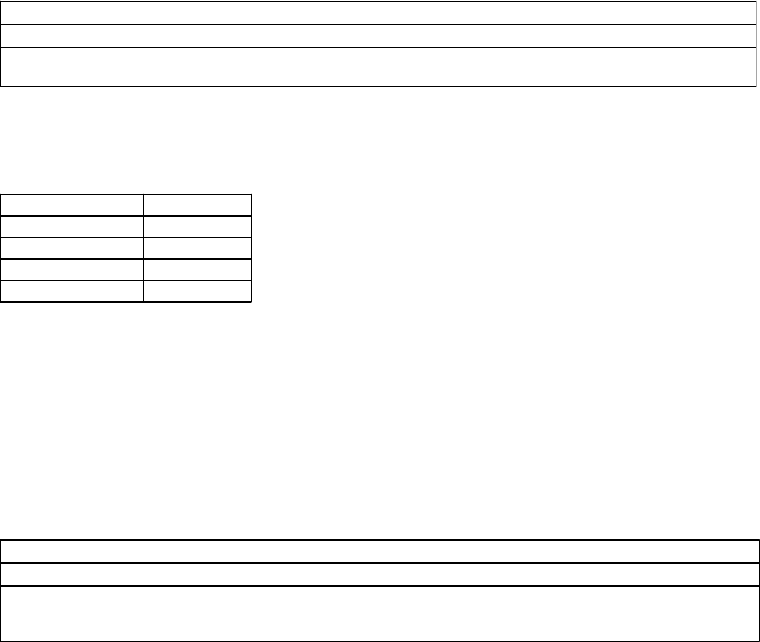
HOST SOFTWARE INTERFACE
6 – 2
Sector Count RegisterSector Count Register
Sector Count RegisterSector Count Register
Sector Count Register
Holds the number of sectors to be sent during a Read or Write command, and the number of sectors per
track during a Format command. A value of zero in this register implies a transfer of 256 sectors. A multi-
sector operation decrements the Sector Count register. If an error occurs during such an operation, this
register contains the remaining number of sectors to be transferred.
Sector Number RegisterSector Number Register
Sector Number RegisterSector Number Register
Sector Number Register
Holds the starting sector number for any disk operation. The register is updated as each sector is processed in
a multi-sector operation.
Cylinder Number RegistersCylinder Number Registers
Cylinder Number RegistersCylinder Number Registers
Cylinder Number Registers
Two 8-bit Cylinder Number registers (Low and High) specify the starting cylinder for disk operation.
Device/Head RegisterDevice/Head Register
Device/Head RegisterDevice/Head Register
Device/Head Register
Used to specify the drive and head number to be operated on during any disk operations. Within the
context of a Set Parameters command, this register specifies the maximum number of heads on the drive.
Bit definitions follow:
76543210
1 LBA 1 DRV HS3 HS2 HS1 HS0
LBA
Mode
Drive
Select
Head
Select
Head
Select
Head
Select
Head
Select
Select LBA Mode
– Enabling this bit for commands not supported by LBA mode will abort the selected command. When set,
the Task File register contents are defined as follows for the Read/Write and translate command:
CONTENTS LBA BITS
Sector Number 0 - 7
Cylinder Low 8 - 15
Cylinder High 16 - 23
Drive/Head 24 - 27
Drive Select – Set to 0 to select the master drive; set to 1 to select the slave drive.
Head Select – Specifies the binary coded address of the head to be selected.
Status RegisterStatus Register
Status RegisterStatus Register
Status Register
Contains results of the last command executed, and the drive’s status. The other seven Task File registers may
be read only when bit 7 (BUSY) of the Status register is low. Reading any of the Task File registers when
BUSY is high returns the value of the Status register. Reading the Status register also clears any interrupt
request to the host. Bit definitions follow:
7654 3210
BUSY DRDY DF DSC DRQ 0 0 ERR
Controller
Busy
Device
Ready
Device
Fault
Device
Seek
Complete
Data
Request
Error
Controller Busy – Goes active when a command is written to the Command register, indicating controller
task execution. After a command, this bit resets.
Device Ready – Indicates that the drive is ready for commands. If drive ready is not present, all commands abort.
Device Fault – Indicates the drive’s detection of a write fault condition, causing all commands to abort.
Device Seek Complete – Signifies a seek completion, and that the drive is on track.
Data Request – Indicates that the drive’s sector buffer is ready for data transfer.
Error – The Error bit sets when the previous command has completed with a non-recoverable error.



